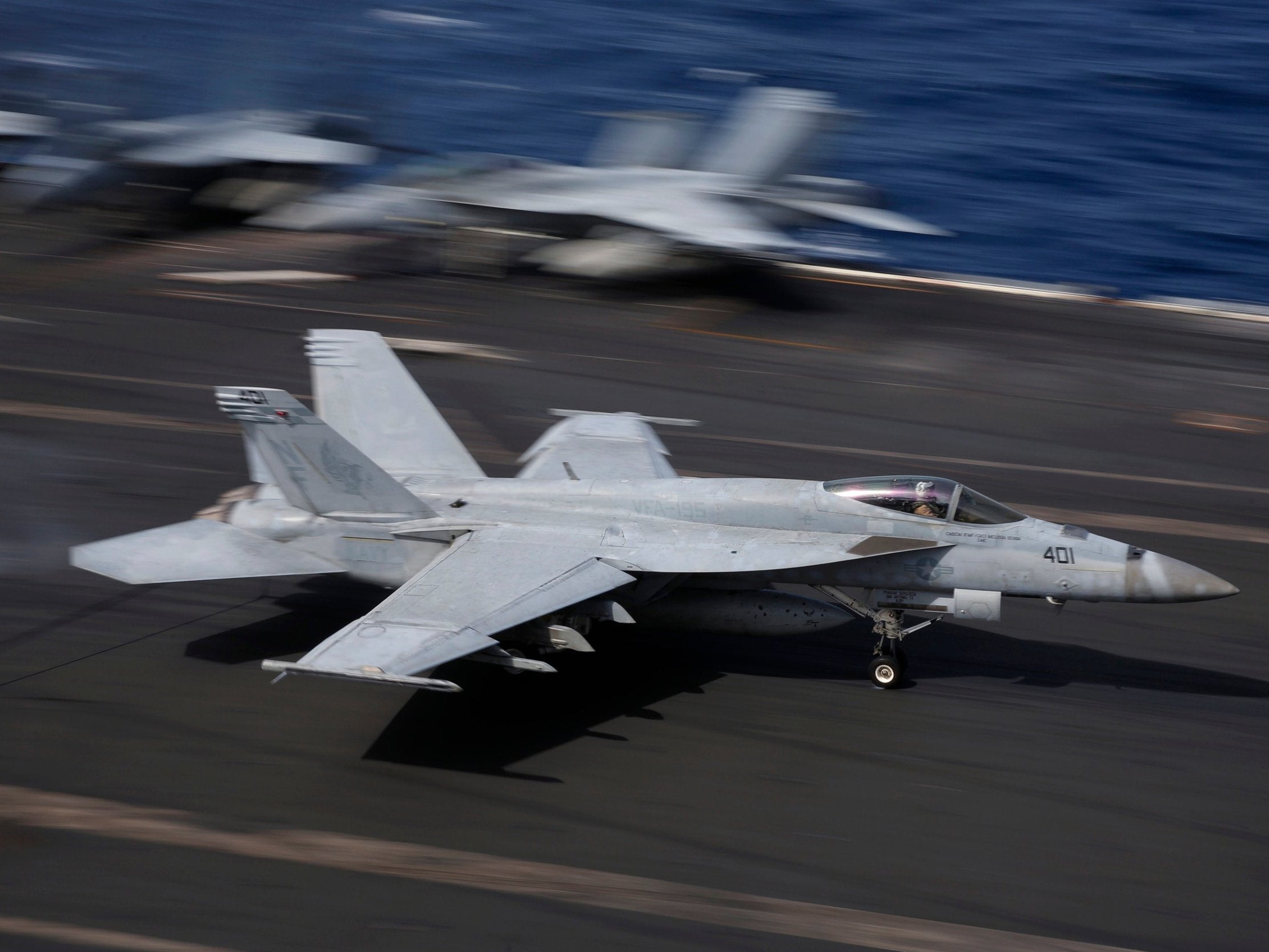Members of US Marine Corps unit involved in deadly jet crash ‘read books and took selfies during flights’
Top brass decries ‘failures in following fundamental principles of professional aviation training and operations’

Your support helps us to tell the story
From reproductive rights to climate change to Big Tech, The Independent is on the ground when the story is developing. Whether it's investigating the financials of Elon Musk's pro-Trump PAC or producing our latest documentary, 'The A Word', which shines a light on the American women fighting for reproductive rights, we know how important it is to parse out the facts from the messaging.
At such a critical moment in US history, we need reporters on the ground. Your donation allows us to keep sending journalists to speak to both sides of the story.
The Independent is trusted by Americans across the entire political spectrum. And unlike many other quality news outlets, we choose not to lock Americans out of our reporting and analysis with paywalls. We believe quality journalism should be available to everyone, paid for by those who can afford it.
Your support makes all the difference.Members of a US Marine Corps (USMC) unit involved in a deadly mid-air crash took selfies and read books while flying, a report has revealed.
Top officers also oversaw a culture of drunkenness, adultery, insubordination and drug use, according to an investigation into the deaths of six marines following a mid-air collision off the coast of Japan.
The crew of a KC-130J Super Hercules refuelling tanker was killed, along with the pilot of an F/A-18D Hornet fighter jet that crashed into it, on 6 December last year.
An official investigation found that pilot error, insufficient oversight of training and an “unprofessional command climate” within the unit – the Marine All-Weather Fighter Attack Squadron 242, stationed in Iwakuni – had contributed to the crash.
“Examples of such unprofessionalism included prescription and over-the-counter drug abuse, excessive alcohol consumption, adultery, orders violations, and failures in following fundamental principles of professional aviation training and operations,” said the report.
In some cases sexually explicit call-signs were used, it added.
Flight schedules were disseminated on WhatsApp, the investigation revealed, while the squadron’s commanding officer took selfies while flying in formation and with his oxygen mask off.
One pilot shared a selfie showing him grooming his moustache with both hands off the flight controls and another was pictured reading a book called The Great Santini with his mask off, investigators found. The 1976 novel features a USMC fighter pilot.
Four senior members of the attack squadron were fired after the investigation – its commanding, executive, operations and aviation safety officers. The Hercules was part of Marine Aerial Refueler Transport Squadron 152, a separate unit.
The commanding general of the III Marine Expeditionary Force warned that “we must all learn from these failures and not repeat them”.
Lt Gen H Stacy Clardy wrote in the report, which was released in September: “A chronic history of unconstrained tasking and under-resourcing created a culture of complacency within this squadron towards Marine Corps high standards of leadership, professional conduct and institutional performance.
“As marines, we pride ourselves on a ‘can-do’ attitude. However, this mishap highlights the significant and insidious risk to safe operations and warfighting proficiency introduced when discipline erodes and expectations of excellence are compromised on the premise of ‘can-do’.”
The USMC said in a statement to The Independent: “Aviation safety is a top priority for the Marine Corps. We rely on the professionalism and attention of all marines to adhere to regulations and policies.
“The findings of the investigation reconfirm our need to constantly evaluate risks, identify unsafe conditions, and ensure internal controls are being followed. Investigating ourselves when mishaps and other events occur is vital to helping us identify issues that create unsafe conditions.
“The investigation determined the sequence of events that led to the fatal aviation mishap resulted from individual decisions and squadron-level procedural failures.”
New leaders of the Hornet squadron have enforced a “back-to-basics” approach to professionalism and safety standards, the Corps added, and temporarily reduced complex flight operations. Further diktats were issued by the 1st Marine Air Wing.
Join our commenting forum
Join thought-provoking conversations, follow other Independent readers and see their replies
Comments